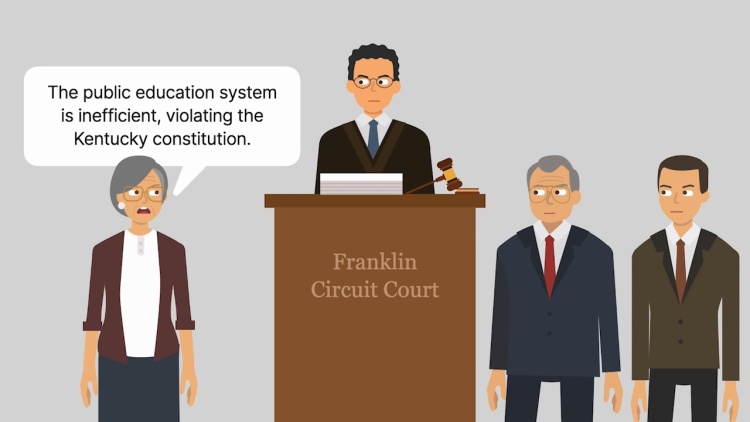Rose v. Council for Better Education, Inc.
Kentucky Supreme Court
790 S.W.2d 186 (1989)

- Written by Josh Lee, JD
Facts
The Council for Better Education (council) (plaintiff) was a Kentucky nonprofit organization with 66 local school districts as its members. The council, along with various school districts and students (plaintiffs), sued state government officials (defendants), seeking a declaration that Kentucky’s education system was inefficient and therefore violated the Kentucky Constitution. Specifically, the complaint alleged that the school-finance laws adopted by the state legislature provided inadequate funding, relied excessively on the resources of local school boards, and created unequal educational opportunities across school districts. Statistics and evidence from expert witnesses showed that children living in wealthier districts with higher property values had greater educational opportunities, in terms of both diversity of curriculum and quality of instruction, than children living in poorer districts with low property values. Additionally, the evidence showed that in national rankings, Kentucky consistently ranked in the bottom 25 percent in almost all categories of educational performance. Based on the evidence, the trial court held that Kentucky’s public-education system violated the state constitution. On appeal, the Kentucky Supreme Court granted review.
Rule of Law
Issue
Holding and Reasoning (Stephens, C.J.)
What to do next…
Here's why 907,000 law students have relied on our case briefs:
- Written by law professors and practitioners, not other law students. 47,100 briefs, keyed to 996 casebooks. Top-notch customer support.
- The right amount of information, includes the facts, issues, rule of law, holding and reasoning, and any concurrences and dissents.
- Access in your classes, works on your mobile and tablet. Massive library of related video lessons and high quality multiple-choice questions.
- Easy to use, uniform format for every case brief. Written in plain English, not in legalese. Our briefs summarize and simplify; they don’t just repeat the court’s language.





